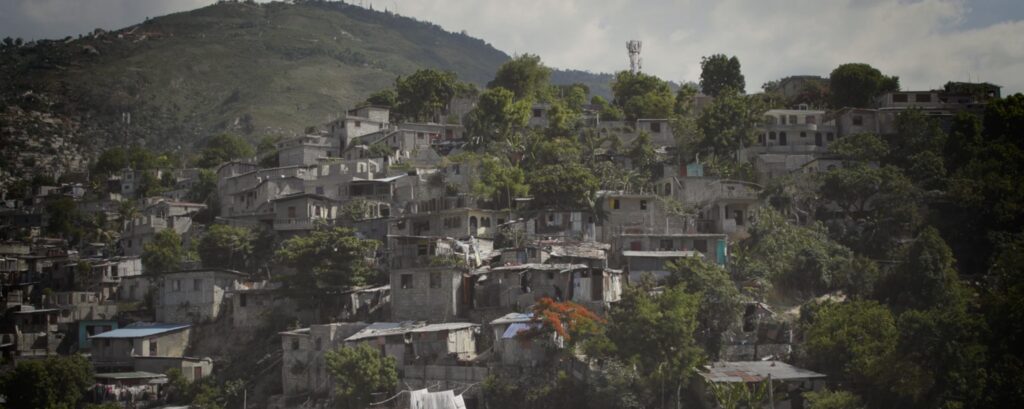
*All names have been changed for personal safety
In the two years since the assassination of Haitian president Jovenel Moïse, people in Haiti’s capital of Port-au-Prince have been caught in a spiral of ongoing violence and insecurity. The turmoil has impacted daily lives, plans for the future, and access to much-needed medical care. Just last week, on July 7, 2023, armed men violently entered a Doctors Without Borders/Médecins Sans Frontières (MSF) hospital in Tabarre and forcibly removed a patient from the operating room, where he was being treated for gunshot wounds.
I wonder whether my life isn’t completely ruined because I was born here.
Pierre*Here, people living and working in Port-au-Prince share their experiences in the face of gang violence, and the consequences for their future and that of their families.
What’s happening in Haiti
Around 90 armed groups are fighting in the streets of Port-au-Prince and now control more than 80 percent of the city. According to the Haitian human rights research group Centre d’analyse et de recherche en droits de l’homme (CARDH), 389 kidnappings were recorded in the first quarter of 2023—an increase of over 173 percent compared to 2021 and 72 percent compared to 2022.
Throughout each week, several MSF cars transport a team of doctors, nurses, psychologists, health promoters, midwives, and water specialists to treat patients in areas affected by violence in the city center.
Quite recently, I was dropping my daughter off at school. When we arrived, a parent and her daughter were kidnapped right in front of us. At the time, all I could think about was protecting my daughter who was in the back seat. I would have done anything and maybe even crash into the car if I had to, but that didn't happen, thank God [...] If I'd arrived 30 seconds earlier, it would have been me.
Esther*An internal survey of our staff and their families conducted by Epicentre, MSF’s epidemiology and research arm, showed a remarkably high level of exposure to violence. About 14 percent of the households surveyed said that at least one member has been witness to an episode of extreme violence over the past 12 months, such as lynching or murder. Five percent said that at least one member of their family has suffered physical violence, including robbery or kidnapping, and 30 percent said they had suffered material damage as a result of the violence. 90 percent of respondents felt that the security situation in 2023 was much worse than in 2022.
How the violence impacts daily life in Port-au-Prince
Day after day, people risk being kidnapped, injured, or killed in street clashes between gangs, civilian self-defense brigades, and the police. Public health care facilities often face regular shortages of staff, medicines, and supplies, so even when people are able to overcome all the barriers to get to a health facility, they still might not be able to receive the care they need.
I love dancing with my wife, but I don’t go out anymore [...] There is no such thing as a social life anymore. Sometimes we don’t even go to church.
Pierre*How MSF is helping people caught in the crossfire
In the first four months of 2023, MSF mobile clinic teams treated 7,781 patients and distributed more than 79,000 gallons of drinking water in the areas of Delmas, Bel-Air, and Bas Bel-Air, where people have been particularly affected by violence. Another 79,000 gallons of drinking water and 607 hygiene kits were distributed to people displaced by violence in the neighborhoods of Fort National and Poste Marchand in February. In 2022, these teams carried out 17,800 consultations.
People always ask me, 'What are you still doing in Haiti?' I say, 'Well, I don't want to leave.' But at some point, it won't be worth trying to resist. There'll be no point resisting anymore.
Louis*In February, and again in April, MSF was forced to suspend activity in its hospital in Cité Soleil because of fighting in neighboring streets. In two years, the hospital has been hit by 65 stray bullets. Elsewhere in the Port-au-Prince metropolitan area, MSF had to permanently close the doors of its emergency center in Martissant in June 2021, and suspend its support for the Raoul Pierre Louis hospital in Carrefour in January 2023 for security reasons. On April 24 alone, MSF teams treated roughly 50 people with gunshot and knife wounds.
